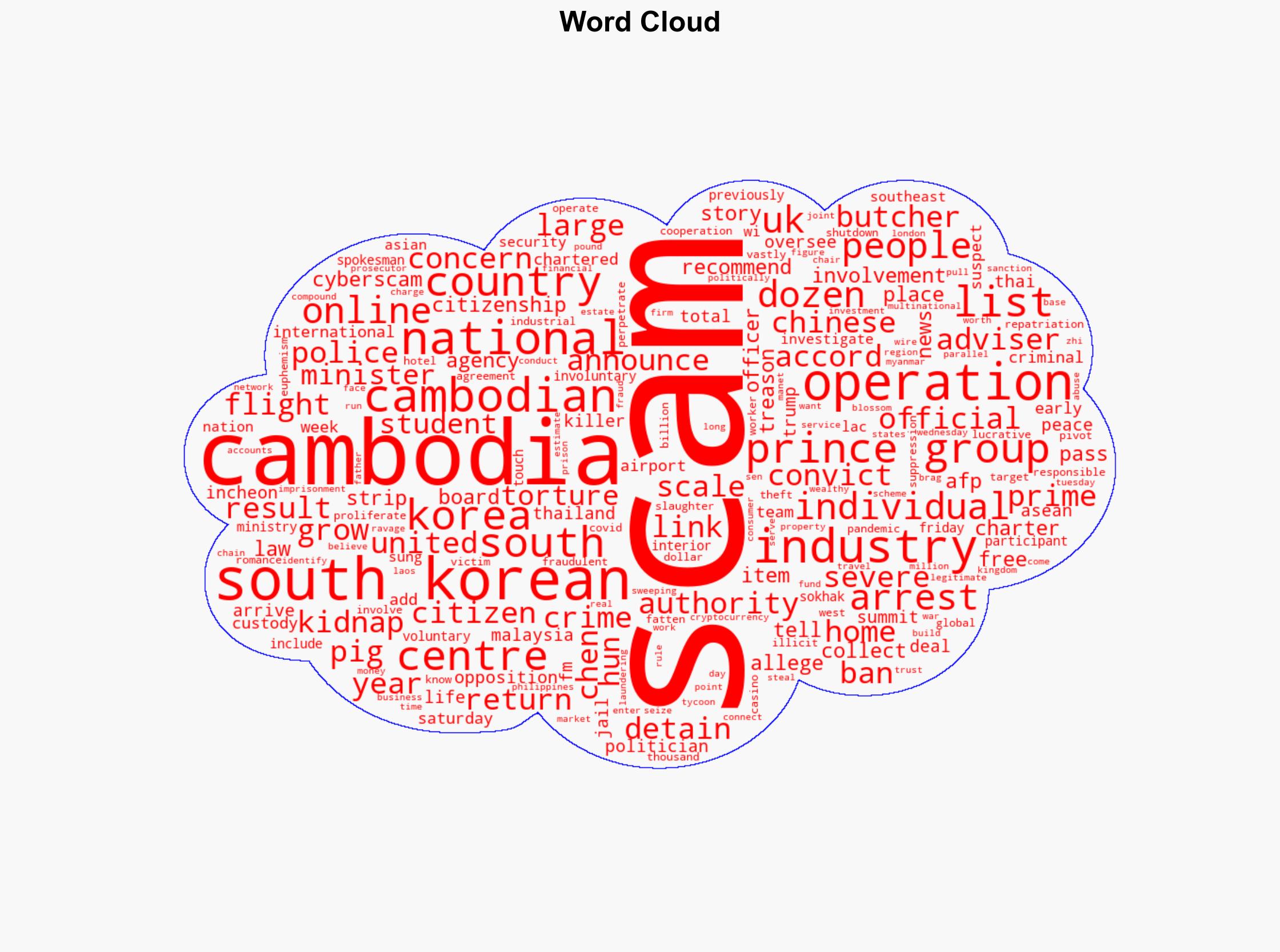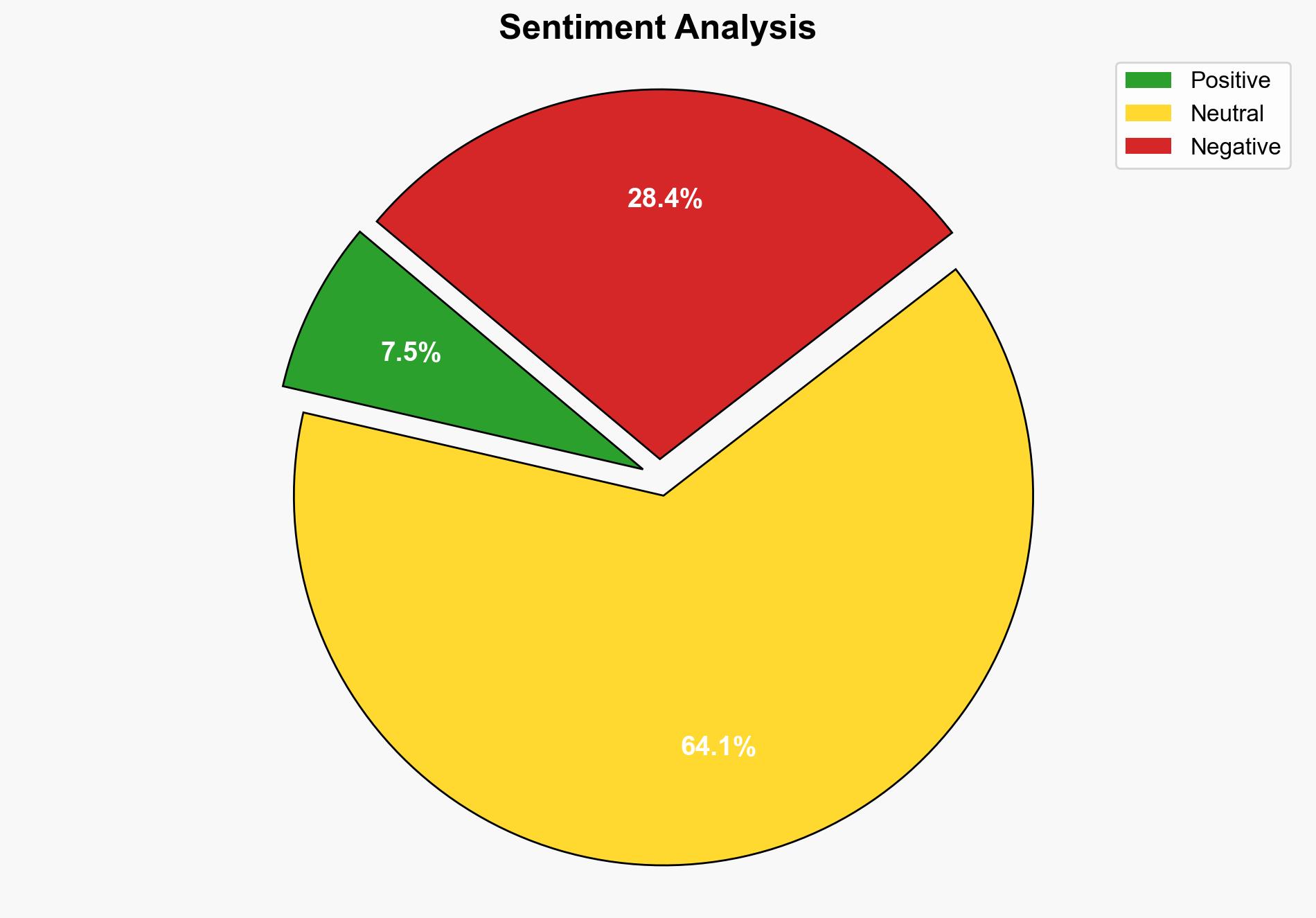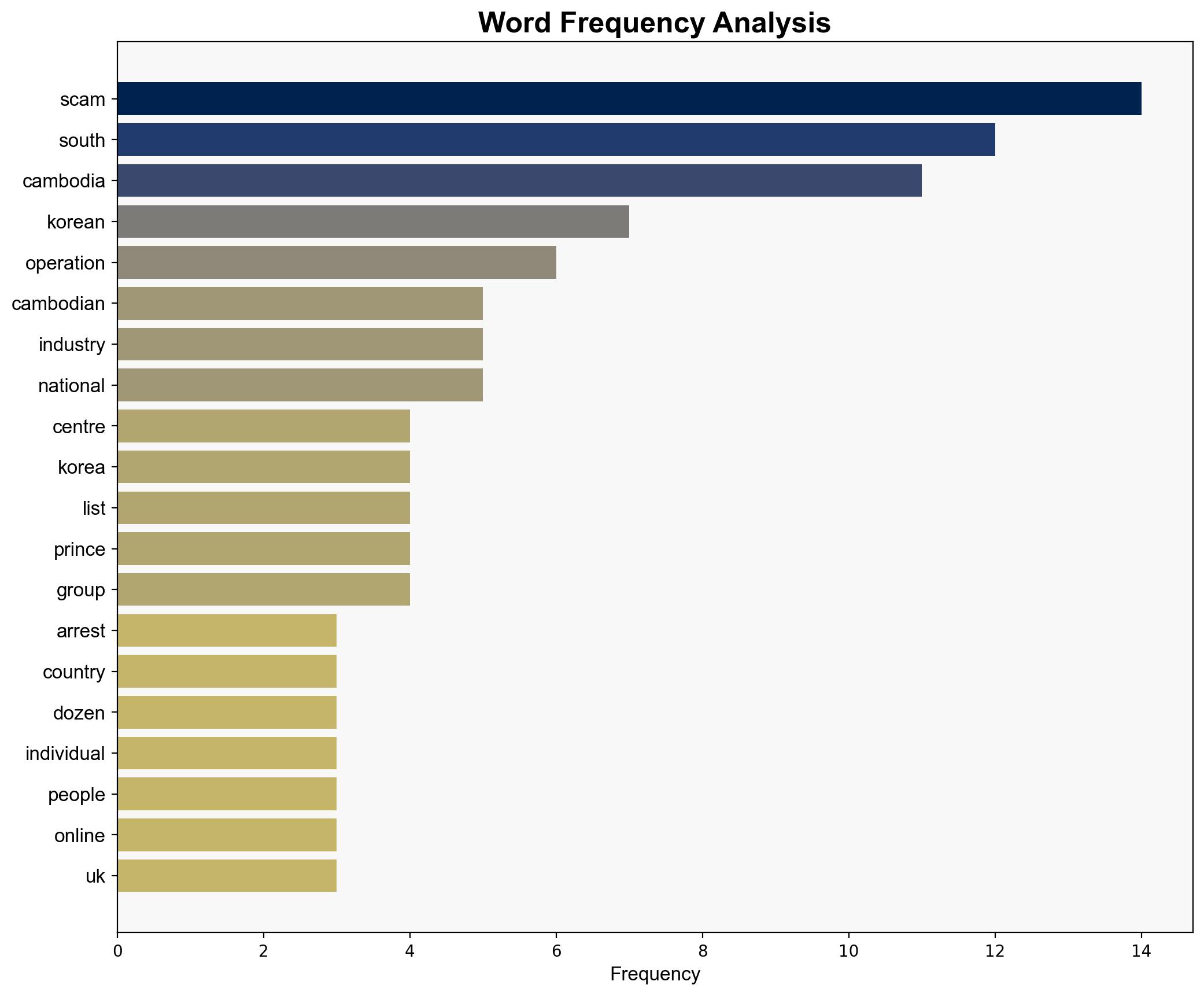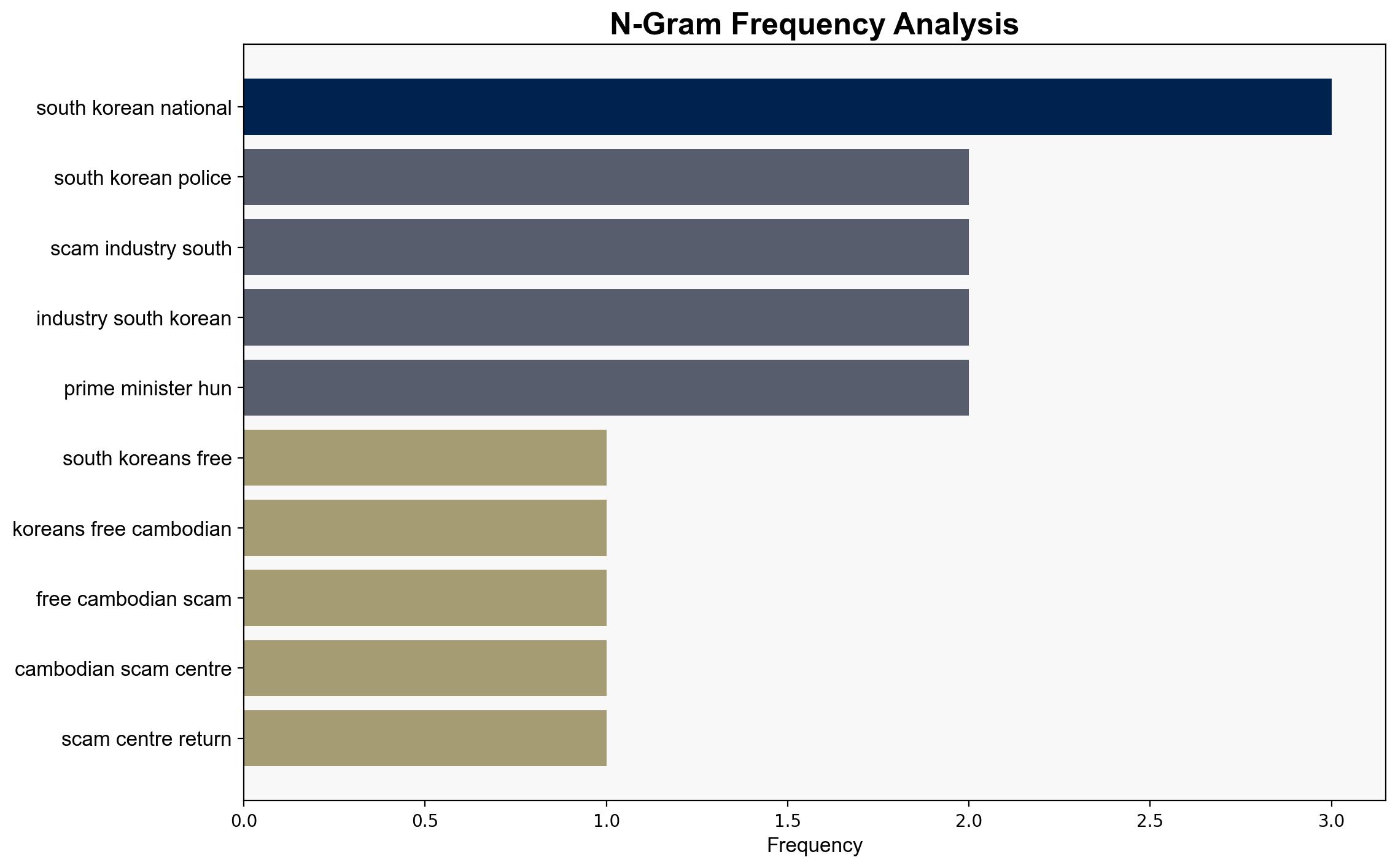South Koreans freed from Cambodian scam centres return home under arrest – Al Jazeera English
Published on: 2025-10-18
Intelligence Report: South Koreans freed from Cambodian scam centres return home under arrest – Al Jazeera English
1. BLUF (Bottom Line Up Front)
The most supported hypothesis is that the South Korean nationals were involved in a complex international scam network, which has significant geopolitical and economic implications. This conclusion is drawn with a moderate confidence level due to the complexity and opacity of the operations involved. Recommended action includes enhancing international cooperation to dismantle these networks and protect citizens abroad.
2. Competing Hypotheses
1. **Hypothesis A**: The South Korean nationals were knowingly involved in the scam operations, participating voluntarily in the illicit activities due to economic incentives.
2. **Hypothesis B**: The South Korean nationals were victims of coercion or deception, forced into participating in these scams under duress or false pretenses.
Using the Analysis of Competing Hypotheses (ACH) 2.0, evidence such as the arrest upon return and the structured nature of the scam operations supports Hypothesis A. However, reports of kidnapping and coercion lend some credence to Hypothesis B, though less strongly.
3. Key Assumptions and Red Flags
– **Assumptions**: It is assumed that all individuals involved had full knowledge of the operations’ illegality. This may overlook cases of coercion.
– **Red Flags**: The involvement of politically connected entities like the Prince Group suggests potential state complicity or protection, which complicates law enforcement efforts.
– **Blind Spots**: The full extent of the scam network’s reach and the exact role of each individual remain unclear, potentially underestimating the network’s sophistication.
4. Implications and Strategic Risks
The proliferation of scam operations in Cambodia poses a significant threat to international cybersecurity and economic stability. The involvement of politically connected groups could lead to diplomatic tensions, particularly if state actors are implicated. There is also a risk of reputational damage to countries perceived as safe havens for such activities.
5. Recommendations and Outlook
- Enhance international law enforcement collaboration to dismantle scam networks and prosecute involved individuals.
- Implement public awareness campaigns to prevent citizens from being lured into scams.
- Scenario Projections:
- **Best Case**: Successful dismantling of networks leads to reduced scam activities and improved international relations.
- **Worst Case**: Escalation of scam operations and increased diplomatic tensions if state actors are implicated.
- **Most Likely**: Continued operations with periodic disruptions, requiring sustained international cooperation.
6. Key Individuals and Entities
– Chen Zhi: Chair of the Prince Group, implicated in scam operations.
– Hun Manet: Cambodian Prime Minister, with potential indirect connections through political advisement.
7. Thematic Tags
national security threats, cybersecurity, organized crime, international relations




